Vladimer Svanadze
Vladimer Svanadze is a doctor of public administration, his doctoral thesis deals with cyber security policy and management strategy. He holds a master’s degree in political science in the direction of international security and international development. He is the author of many articles and works, including the co-author of the first Georgian-language book “Cyber Defense: Main Players of Cyberspace. Policy, Strategy and New Challenges of Cyber Security, 2016″ in Cyber Security. Also, in 2022, the second Georgian-language book “New Challenges of Cyberspace and Georgia” was published by his authorship. In 2024, his monograph “Cyber Security Policy, Management Strategy and Recommendations” was released.
- Svanadze is an affiliated professor at the University of Business and Technology, an invited lecturer at the Institute of Public Affairs of Georgia and an associate professor at the Caucasus University. For the first time in Georgia, he created a new training module “Internet Governance and Cyber Diplomacy”. He gives lectures in the given direction at the Institute of Public Affairs of Georgia.
He is the founder and chairman of the board of non-profit legal entity “Internet Development Initiative (IDI)”; Founder and Managing Partner of Cyber Security Academy of Georgia (CSA); Senior Analyst, Global Foundation for Cyber Research (GFCYBER).
He was involved in the preparation of the final version of the 2017-2018 and 2021-2024 national cyber security strategies and action plans of Georgia, participated in the process of making amendments to the “Law on Information Security” and in the work process on new legislation. In 2014-2016, he was a consultant on cyber security issues at the “LEPL – Cyber Security Bureau” of the Ministry of Defense of Georgia, in the process of its creation and formation, he took an active part.
- Svanadze is the initiator and chairman of the “Digital Transformation and Cyber Security Committee” of the International Chamber of Commerce in Georgia (ICC Georgia); Initiator and organizer of the annual International Cyber Security Festival (IFCS). On his initiative and direct organization, the first Georgian Internet Governance Forum (GeoIGF) was held in Georgia in 2016. Vladimer was invited as a national expert and consultant in the IFES/USAID project to assess the critical infrastructure and cyber security resilience of the Central Election System of Georgia. He was also a national expert in another USAID project to assess the cybersecurity resilience of Georgia’s Internet infrastructure, financial and educational sectors; National expert/consultant in the EU project “Save the Children” in terms of cyber security. He was the first in Georgia to create a training module in cyber security for schools, which was introduced by the school-lyceum “I-B Mtiebi”. From 2019 to the present, he is an expert of USAID. He has participated in many other regional and international projects. In 2018, he was invited as a consultant on cyber security policy and strategy by the governments of Kazakhstan and Ukraine.
He is a three-time fellow of ICANN and RIPE NCC. On his initiative, the organization “Georgian Information Security Association” was created, where leading experts and specialists of the country are united. On his initiative and organization, the first international cyber security winter camp and the “Digital Culture School” were held, as well as the creation of an online technology magazine CyberStellar, he was the author and presenter of the radio program “Cyber Talk”.
Vladimer Svanadze supervises a doctoral candidate in the business administration doctoral program of BTU within the framework of the following research topic: “The process of technological augmentation of the defense system of Georgia”.
Important activities of scientific and international activity of Vladimer Svanadze for the purposes of BTU business administration doctoral program are:
- International certification of Check Point’s Secure Academy – certified trainer status;
- Close cooperation with various thematic international organizations (ICANN – The Internet Corporation for Assigned Names and Numbers; The RIPE Academic Cooperation Initiative (RACI) for planning joint projects and initiatives).
